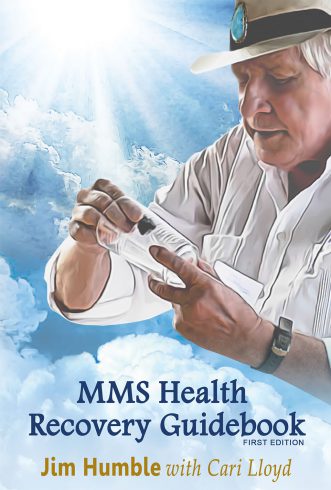- Posts: 36
- Thank you received: 77
We encourage new members to post a short introduction of themselves in this forum category. Get to know your fellow board members and their interests and skills. Please come and participate in educating people about the healing miracle that is MMS, and join the movement to make it available to the World!
 CDS 12000
CDS 12000
- Tomas
-

- Offline
- Junior Member
-

But from the point of safety the situation is completely different, especially for strong CDS solutions. Let's compare e.g. 1 liter bottle full of CDS with the same amount divided in ten small bottles. There will be 1 liter of air saturated with CD or 0.1 liter* respectively at the end. In the case of an accident the consequences will be quite different – in the blast intensity and the amount of chlorine dioxide gas that is released to atmosphere from the liquid.
* I suppose that every 100 ml bottle will be rinsed with water when it is empty.
Please Log in or Create an account to join the conversation.
- pam
-

- Offline
- Platinum Boarder
-

- Posts: 4593
- Thank you received: 3705
Please Log in or Create an account to join the conversation.
- Tomas
-

- Offline
- Junior Member
-

- Posts: 36
- Thank you received: 77
Due to lower partial pressure at 5 °C the speed of gas off is also slower - another beneficial of keepinh CDS solution cold.
Please Log in or Create an account to join the conversation.
Jim's Blog
-
Genetic Disorders
Published on: November 16, 2025
I don’t recall anyone who had Wilson’s disease working with me with MMS/CD. However, many other diseases that Mayo clinic and other medical people call “genetic” have been handled with MMS as easily as non-genetic diseases. I have noted so many genetic diseases overcome by MMS/CD, either because MMS/CD kills (oxidizes) poisons or kills pathogens, …
-
MMS/CD and Exercise
Published on: November 10, 2025
In order to really beat any major illness, you’ll need to consider some lifestyle changes, which means proper diet, exercise and the whole works. A lot of people aren’t up to exercise, but they are up to taking MMS (chlorine dioxide) to start their healing journey. The idea is, to take MMS/CD to where they …
-
The Critics
Published on: November 3, 2025
In this video clip Jim comments on his critics and the problems that false reporting can cause.
-
When You Think It’s Not Working
Published on: October 27, 2025
Jim’s thoughts on someone who was taking MMS/CD one time a day and they got loose stools and stopped taking it, thinking it was not working: Jim: First thing I would tell him is to follow the Three Golden Rules. If he was taking it daily and was getting loose stools, I would say he …
-
Fixing What’s Wrong
Published on: October 20, 2025
This is an excerpt from a private discussion between Jim and a woman. They discuss how the past can affect our present—Jim offers solutions on how to fix any wrongs.
-
Jim on Dosing with Vitamin C & MMS/CD
Published on: October 13, 2025
A lot of people like to take mega doses of Vitamin C for different reasons. By mega doses I mean like 5 grams (not milligrams but grams), or even more. If it were me, and I wanted to take Vitamin C, I would take it some time in the afternoon or evening, and then I …

